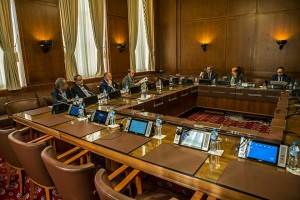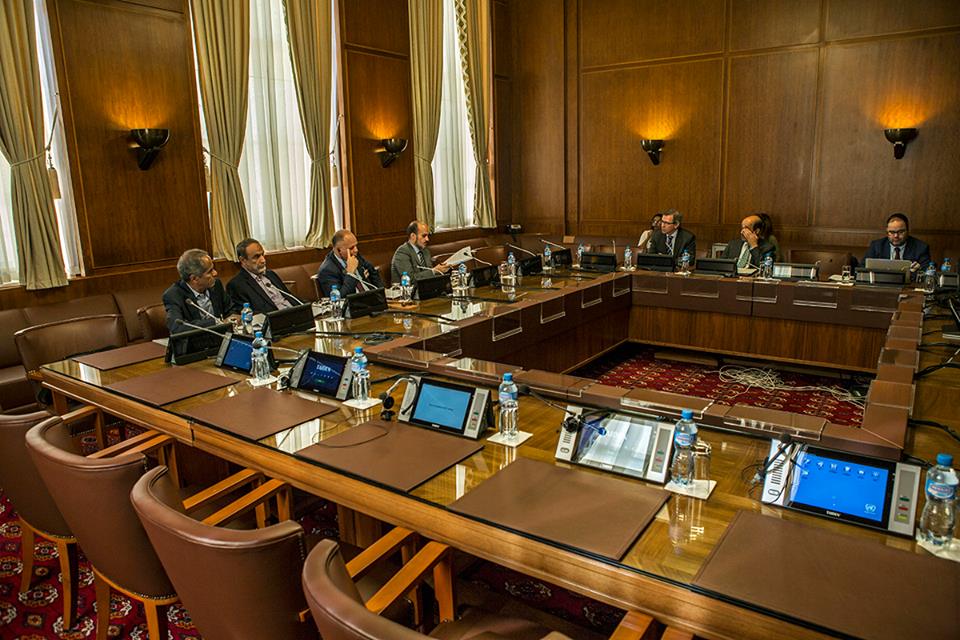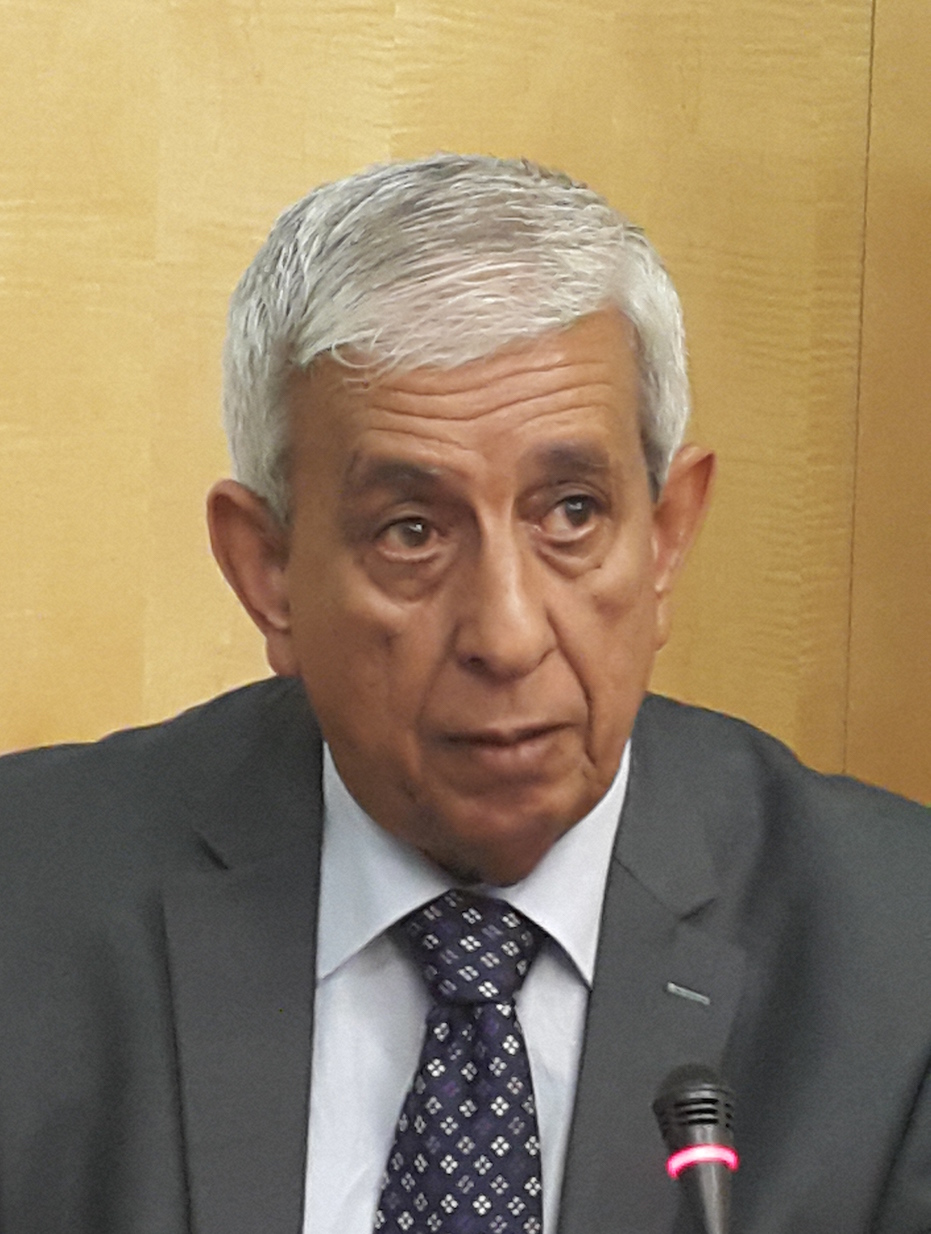By Hadi Fornaji.

Tripoli 4 September 2015:
An exhausted UNMIL chief Bernadino Leon said this evening that the Dialogue meeting in Geneva was to . . .[restrict]run into a third day of what he described as very complicated negotiations .
“We are making progress” Leon told a late night press conference, adding, “we are now, after the meetings we had yesterday and today, in a better position than when we started”.
It is clear that negotiations had revolved around the nine points that the delegates from the rump of the General National Congress had raised with Leon at his meeting with them in Istanbul, earlier this week. These are understood to include the status and powers of the State Council, which would include members of the GNC who were originally elected in July 2012. There is also the disputed validity of legislation passed by the House of Representatives since it was elected in June last year.
The challenge for Leon is to address these changes demanded by the GNC in an agreement that already initialled by the HoR team and other Dialogue participants in Skirhat last month, at a meeting from which the GNC absented itself.
Some of those who signed up to what was Draft V of the Political Accord and those who chose to witness that signing may be taking a dim view of the GNC’s team’s attempt to rewrite the deal. The Geneva meeting was supposed to be about selecting the premier and two deputies of the new National Unity Government (Annex 1 of the agreement) and nailing down the final form and composition of the State Council (Annex 3).
The HoR delegation had arrived with a list of names for the leadership of the NUG, but Leon said that the GNC had not yet produced their picks. He also said that the delegation would need to return to Tripoli to take advice on “ a couple of issues”.
Leon insisted that the GNC was still involved in the Dialogue. He expected them to rejoin the talks when they reconvened, probably next Wednesday, though he did not say where these would be.
Despite admitting to reporters that all involved in the talks were exhausted, Leon continued to be upbeat. The mood was positive, he said. The talks had good momentum. But there was still a lot of work to do. “ We still have this extra mile [to go] and it is going to be really difficult and tough, but possible”.
He continued: “My message to the Libyans first and foremost, and my message to the international community, is that we really have a chance to reach a final agreement in the coming days and that we cannot afford, Libya cannot afford, to miss this opportunity”.
However, it seemed clear both from Leon’s reference to “clearing up a number of points with different delegations” and from pictures published this evening by UNSMIL, that he had been shuttling between different rooms in which HoR and GNC teams sat and that there had been no full sessions in which all parties had debated together.
The Geneva talks appear to have been dominated by the GNC’s desire for changes. Leon delivered a mixed message at his press conference, saying both that he thought that the GNC’s could be addressed in the annexes and that the agreement already initialled could be changed.
“I have also explained many times that we should be flexible on the overall package” he said, “What is important here is to address the specific concerns of all the parties. No one should be expected to finally support the agreement if their concerns are not addressed”. He said that he thought that the GNC’s nine points could be incorporated in a deal that would still have the support of the HoR.
He repeated his determination that the deal should finally be signed by all parties by 20 September and the new government be in place by 20 October, at which point, under the current version of the Constitutional Declaration, the mandate of the HoR would run out. The Draft accord provides for the term of the parliament to be extended by one, if not two years.
A reporter asked Leon if he thought the final signing could be held in Libya itself. He said that ideally that should be the case but it depended very much on security arrangements.
The eventual inking of the Political Accord would, he added “be the final metres, or yards, of the final mile”.
![]() [/restrict]
[/restrict]











